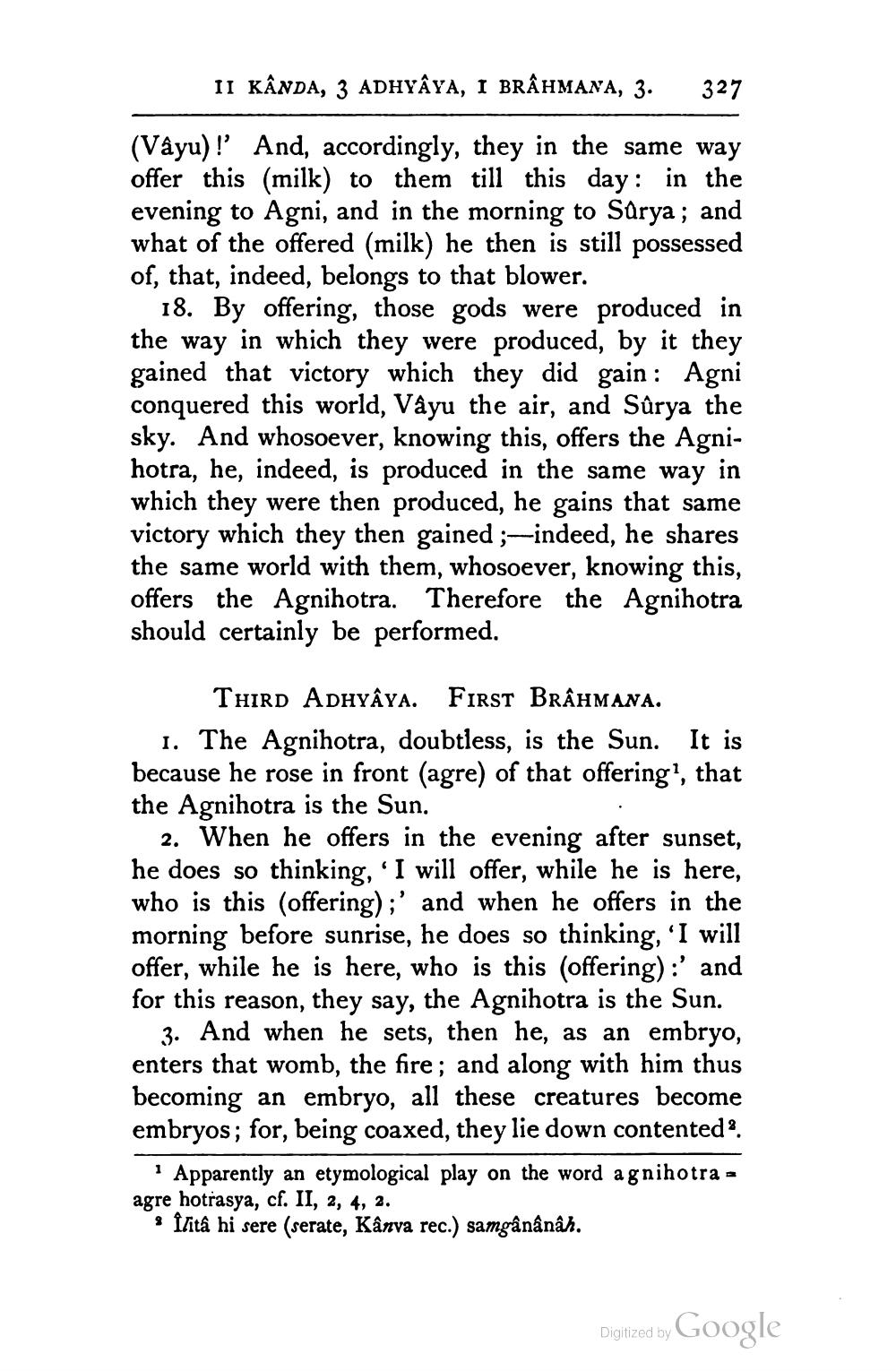________________
II KÂNDA, 3 ADHYAYA, I BRÂHMANA, 3.
327
(Vậyu)!' And, accordingly, they in the same way offer this (milk) to them till this day: in the evening to Agni, and in the morning to Sarya; and what of the offered (milk) he then is still possessed of, that, indeed, belongs to that blower.
18. By offering, those gods were produced in the way in which they were produced, by it they gained that victory which they did gain : Agni conquered this world, Vayu the air, and Sûrya the sky. And whosoever, knowing this, offers the Agnihotra, he, indeed, is produced in the same way in which they were then produced, he gains that same victory which they then gained ;-indeed, he shares the same world with them, whosoever, knowing this, offers the Agnihotra. Therefore the Agnihotra should certainly be performed.
THIRD ADHYÂYA. First BRÂHMANA. 1. The Agnihotra, doubtless, is the Sun. It is because he rose in front (agre) of that offering', that the Agnihotra is the Sun.
2. When he offers in the evening after sunset, he does so thinking, 'I will offer, while he is here, who is this (offering);' and when he offers in the morning before sunrise, he does so thinking, 'I will offer, while he is here, who is this offering) :' and for this reason, they say, the Agnihotra is the Sun.
3. And when he sets, then he, as an embryo, enters that womb, the fire; and along with him thus becoming an embryo, all these creatures become embryos; for, being coaxed, they lie down contented®.
* Apparently an etymological play on the word agnihotra - agre hotrasya, cf. II, 2, 4, 2.
• Îlita hi sere (serate, Kârva rec.) samgânânâh.
Digitized by Google




